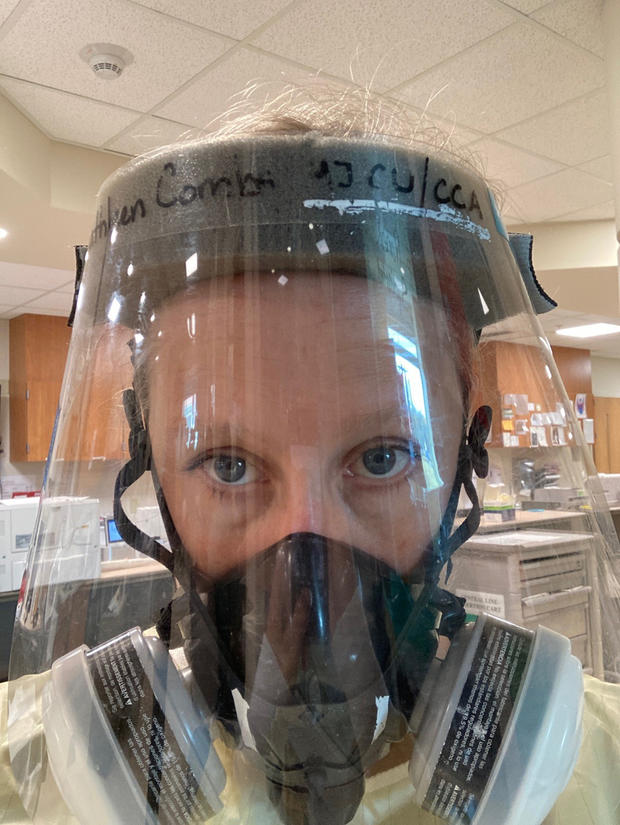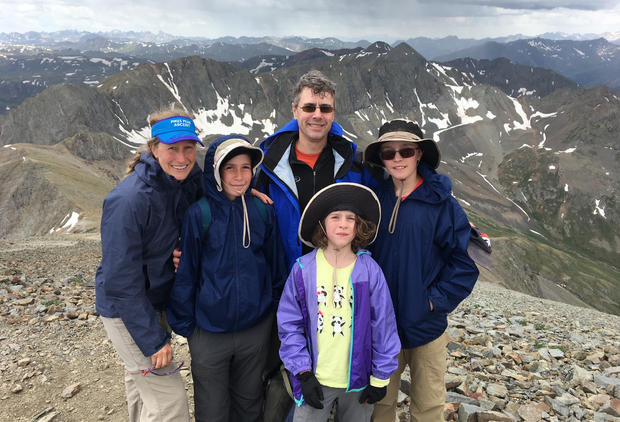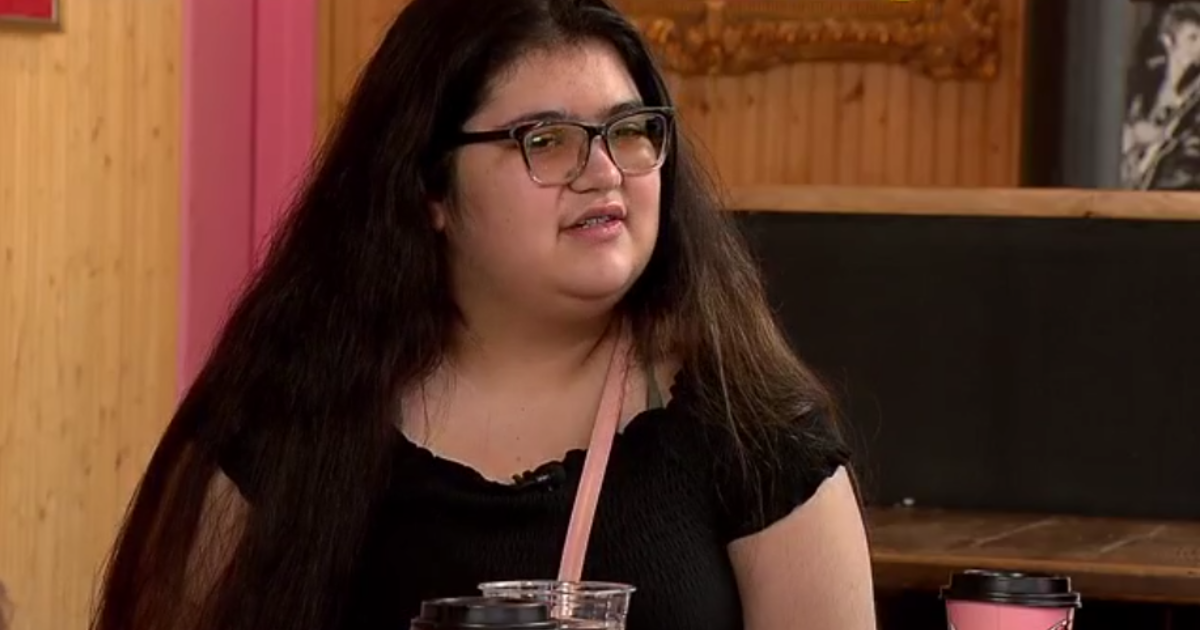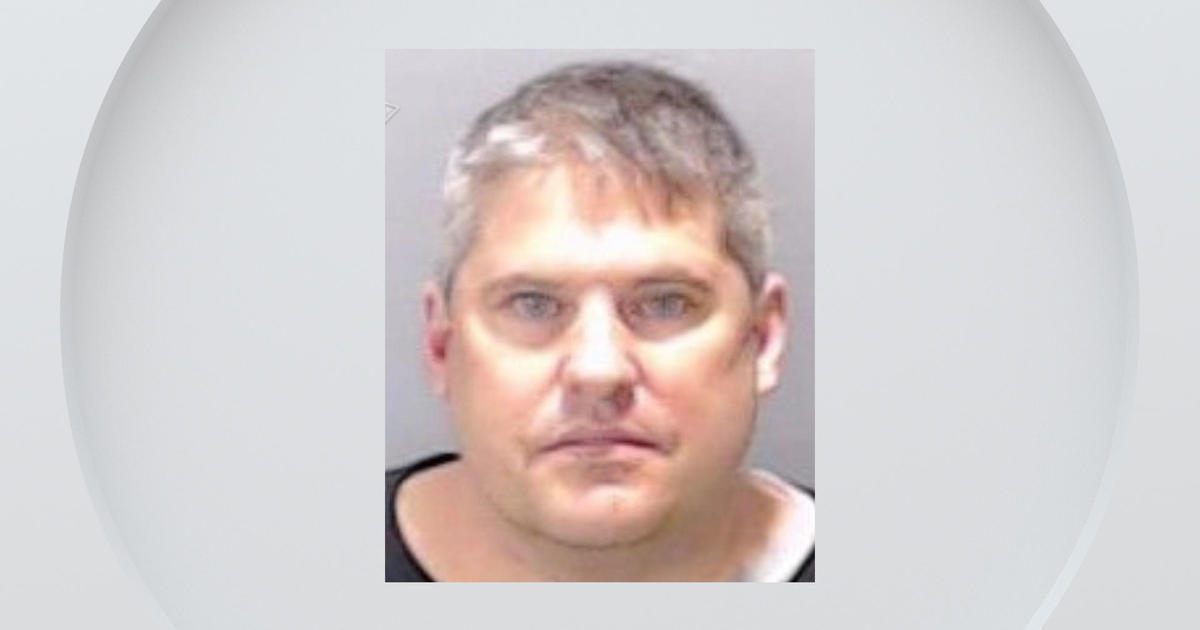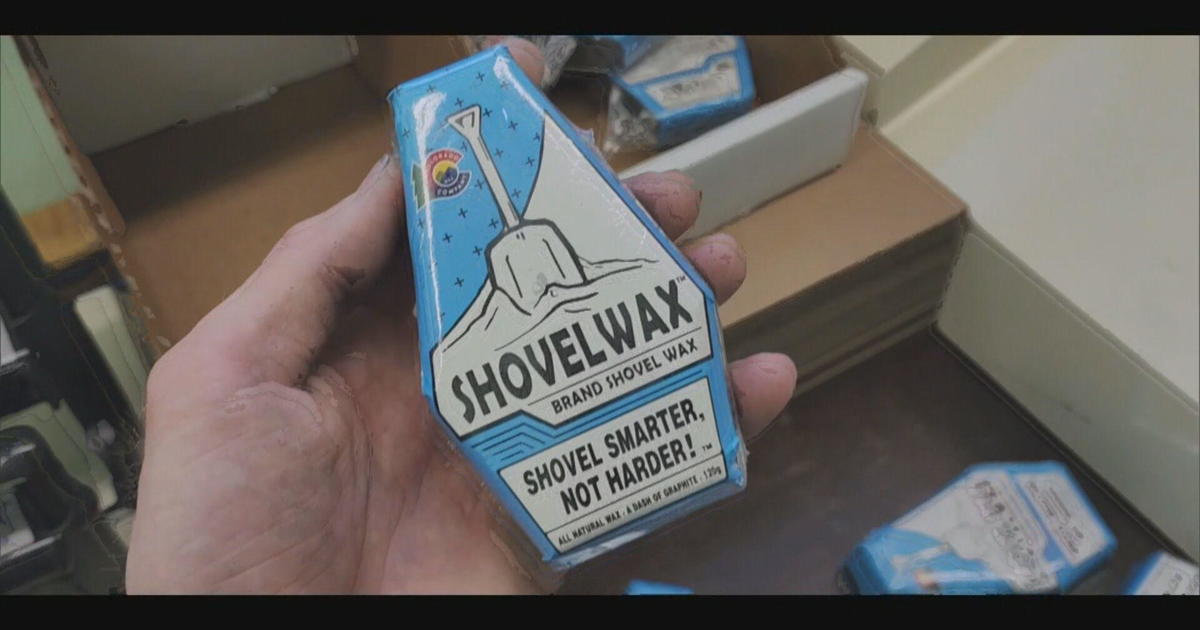Nurse Sees Cruelty Of COVID Up Close Inside Colorado ICU
AURORA, Colo. (CBS4) - "The patients are very sick and they are as sick as all the ICU patients I've cared for over the last 17 years," says UCHealth University of Colorado Hospital nurse Kathleen Combs. She's been working in the COVID ICU since March when she volunteered.
"I just felt it in my gut that this was the right thing to do that I have the right experience working in a medical ICU with pulmonary patients primarily anyway."
She's been a nurse for 20 years, in ICUs for 17. The coronavirus pandemic has changed things and has changed since the early days last Spring. "This time we have more treatments and we understand it more and we realize that what we have done, what we did in the beginning of intubating almost everyone, doesn't necessarily have to happen."
Now there's less intubation because they've refined treatments. But COVID-19 is still cruel.
"It doesn't care. It doesn't care who you are, it doesn't care what you believe, it just takes over the body," said Combs. "And when it takes over in a bad way that's the end and it's cruel and it's mean and it's vicious."
Some of the hardest times come as she tries to communicate with her patients as she is dressed in protective gear and wearing a respirator.
"I walk in a room with this crazy getup on, and they look at me like I'm from another planet and I don't blame them," she says. "I sound like Darth Vader when I put on the half face respirator. So I have to speak at an incredibly large volume and I don't speak loud, so reminding myself to speak louder and to speak into the ears of the patients ... It's amazing how much people depend on reading lips. when they listen to someone speak."
While communicating with patients is hard, the communication with families is difficult as well.
"Trying to help families visit with their loved ones, it's crushing," she explains. They will bring iPads in with family members on a video call and hold them near the patients. Most of the time the patients can't speak or interact. They may be sedated or intubated. One time there was a language barrier and a family member was trying to wake a mother in the ICU.
"The family member on screen just kept saying 'Wake up, wake up mom. Mama, wake up wake up.' And she did this for 5 minutes straight. And that hurt. That really hurt."
And there are conversations with families, some of whom express regret.
"I see family members express that to me often. 'I wish I told him not to go do that. I told him to wear a mask.'"
And then there is loss.
"Losing patients has been part of my life. But it's harder with COVID mostly because of the isolation of the patients from their family members."
Her heart goes out to the patients who are trapped in a life in which they have to be front-line workers, or workers in jobs that put them at greater risk and have no choice to work from home, or choose to stay away.
"They just need to survive. They just need to put food on the plate for their families. They need to have a roof over their heads. That hurts a lot, too."
As the pandemic has worn on month after month, it's become more political. Kathleen does not judge the cases she gets.
"It doesn't matter what you've done in your life. You're in my hands now. And I will take care of you," she says.
But it's distressing to her how the view of the threat can come through a political lens.
"When I think about how it has been politicized, how it has made such a divisive community around it, it's just, I don't know what to do."
Unlike many who may doubt the severity of the outbreak, she sees its damage every day.
"We can keep it in check by just wearing a mask. And staying distant as we can from other people."
